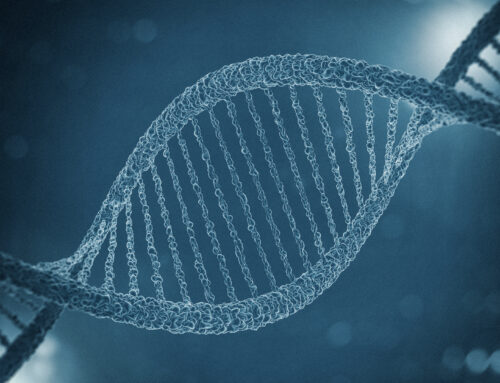Carrier and newborn screenings both offer families information about the risk of a child having an early-onset, potentially life-limiting disease. However, carrier screening provides information much earlier in the family planning process. Ideally done prior to conception, carrier screening helps couples understand their risk of having a child with a serious genetic condition as well as available options. Newborn screening is for the baby – rather than the parents – and performed after birth. Read on to better understand the differences between carrier and newborn screenings and what Jewish and interfaith couples should know.
What is carrier screening?
Carrier screening is an essential step in planning for a healthy family. While everyone carries 6-8 changes in their genes, some genetic changes are more common among people of the same ethnic background. There are more than 19 recessive conditions that are more common among Ashkenazi Jews. Carriers are healthy individuals but if two people are carriers for the same condition, their future children may be at risk.
Ideally, couples should get carrier screening prior to pregnancy to understand their risks and all options. Carrier screening can also be done during early stages of pregnancy. Understanding the risk of having an affected child before birth gives couples more time to prepare.
What is newborn screening?
Newborn screening is a public health program that can identify babies who have certain early-onset, potentially serious diseases. After a baby is born, and before the baby is discharged from the hospital, a blood sample is obtained through a heel prick. This blood sample is then analyzed to determine if a newborn is at high risk for certain genetic, metabolic, or congenital conditions. Babies with positive newborn screening results require additional diagnostic testing to determine if they are truly affected with a disease. Newborn screening also includes a hearing test and a pulse oximetry test to assess the risk for critical heart defects.
By identifying babies who have a serious illness, newborn screening allows for prompt follow up and early diagnosis. In many cases, early interventions and preventive measures can reduce symptoms, or even stop them before they begin. Ensuring that newborns with potentially life-threatening conditions get the treatment they need early on in life can have a major impact on improving long term health outcomes.
All babies born in the United States receive newborn screening. The programs are mandated by state law, and the conditions screened for vary slightly from state to state.
Do carrier screening and newborn screening test for the same conditions?
There is some overlap between diseases found on carrier screening panels and diseases that are part of newborn screening. Both include many recessive genetic conditions and metabolic disorders; however, there are some key differences. Some of the conditions on newborn screening, such as congenital heart disease, do not have a universal genetic cause and are not part of routine carrier screening. On the other hand, large expanded carrier screening panels may include a significantly higher number of conditions than newborn screening panels.
Both newborn screening and carrier screening provide information about risk for genetic disorders, but do not provide an actual diagnosis. Newborn screening may detect that an infant has a disorder. Individuals with positive newborn screen results will be referred to a specialist for counseling and diagnostic testing to determine if the condition is truly present. Couples who have had negative carrier screening may already know they are at low risk for having a child with some of the newborn screening diseases before their baby is tested
What diseases are included as part of newborn screening?
Every state has a newborn screening program, although the conditions they screen for vary by state. Diseases included on newborn screening panels are early-onset and life-limiting, and some are potentially fatal. For diseases that are treatable, starting treatments early can impact the course of the disease. Newborn screening typically includes conditions from the following groups of disorders:
- Amino acid disorders
- Fatty acid oxidation disorders
- Organic acid disorders
- Lysosomal storage disorders
- Other metabolic disorders, such as galactosemia and biotinidase deficiency
- Hemoglobin disorders, such as sickle cell disease and thalassemia
- Endocrine disorders (hypothyroidism and adrenal insufficiency)
- Cystic fibrosis
- Hearing loss
- Critical congenital heart disease
Baby’s First Test provides more information about these diseases.
Newborn screening panels do not screen for all genetic diseases. Sometimes, healthcare providers recommend additional testing based on family history or other risk factors. It is important to make your doctor aware of any diseases you are concerned about your child inheriting in order to determine if they should be tested after birth.
For more information about newborn screening in your state, visit http://www.babysfirsttest.org/newborn-screening/states.
Individuals in Illinois can also find information about newborn screening on the Illinois Department of Public Health website.
What else do Jewish and interfaith couples need to know about these screenings?
Diseases on newborn screening are not selected for individuals based on ethnic risk. Conditions on newborn screening affect infants of any background, and are not specific to one ethnicity. Some, but not all, Jewish genetic disorders are included on newborn screening and conditions vary depending on what state your child is born in.
Carrier screening can provide more information about a couple’s risk of having a child with a Jewish genetic disorder. Many screening programs for Jewish and interfaith couples, including the one offered by the Norton & Elaine Sarnoff Center for Jewish Genetics, screen for conditions that are more commonly found among Jews as well as pan-ethnic conditions that are found equally across people of all backgrounds. For more information about carrier screening, contact the Sarnoff Center.


